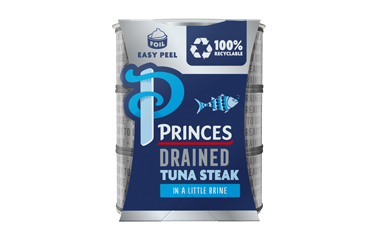Tesco has begun purchasing Marine Stewardship Council-certified tuna from Papua New Guinea, and food and beverage group Princes has reported that despite supply chain challenges related to the COVID-19 pandemic, all of its branded tuna came from responsible sources in 2021.
Hertfordshire, England-based Tesco, which operates more than 4,600 grocery stores, made the commitment after “a long assessment,” according to PNG Fishing Association Sustainability Director Marcelo Hidalgo.
“Tesco, after several meetings, decided to buy MSC-certified tuna from PNG because of our Responsible Social Policy (RSP) – for the U.K. market,” Hidalgo told SeafoodSource. “Tesco is the first supermarket in the U.K. to start buying MSC-certified tuna coming from purse-seiners when we know the high commitment that U.K. retailers always have with pole and line[-caught tuna]. This decision will be a game-changer for the U.K. supermarket [sector].”
The Papua New Guinea Fishing Industry Association’s purse-seine skipjack and yellowfin tuna fishery received Marine Stewardship Council certification in May 2020. The fishery includes onshore processing plants in Papua New Guinea (PNG), supported by PNG-flagged vessels and locally-based foreign fishing vessels.
Hidalgo said the decision will make it more likely that other retailers will begin buying MSC-certified purse-seine caught tuna from PNG
“We, at FIA PNG, are very proud to be chosen as Tesco’s MSC tuna supplier and we are expecting that other U.K. markets will follow that decision," he said. “Our commitment to our RSP and our contribution to the [U.N. Sustainable Development Goals] place us as a good commercial partner in the tuna supply-chain. We build trust and we deliver excellent-quality tuna products.”
Liverpool, U.K.-based food and beverage supplier Princes has also moved forward with its sourcing of MSC-certified tuna. With 100 precent of its branded tuna in the United Kingdom, the Netherlands, and Poland coming from either fishery improvement projects or MSC-certified sources last year, and its Austrian Vier Diamanten brand sourcing from fish-aggregate-device free and pole-and-line fisheries, Princes has fulfilled a promise it made in 2018.
“We’ve applied ourselves fully across all areas of our tuna sourcing to reach our 100 percent target. This has been achieved despite the significant supply chain pressures that businesses across the industry are continuing to face during this turbulent time, as a result of the pandemic,” Princes Group Director for Seafood Neil Bohannon said. “This has not been a short or simple journey, but it is a testament to what can be achieved through close collaboration with suppliers, hard work and a firm commitment to driving sustainability. Our efforts now turn to continuing to uphold this pledge, to support the continuous improvement and long-term sustainability of tuna fisheries.”
In 2019, Princes became one of the founding partners of a pole-and-line tuna FIP in Senegal. This followed its investment as a founding member of the Sustainable Indian Ocean Tuna Initiative (SIOTI), a partnership of tuna processors, vessel owners, government agencies, and WWF to help the purse-seine fishery in the region meet MSC sustainability standards.
Princes is also a founding partner of the International Seafood Sustainability Foundation (ISSF), established in 2009.
Its two tuna processing sites in Mauritius are MSC Chain of Custody-certified and both hold SA8000 certification for social accountability.
In 2021, Princes reached its goal of reducing the amount of yellowfin tuna that it sources from the Indian Ocean by 50 percent, one year ahead of its target deadline.
Photo courtesy of Princes







